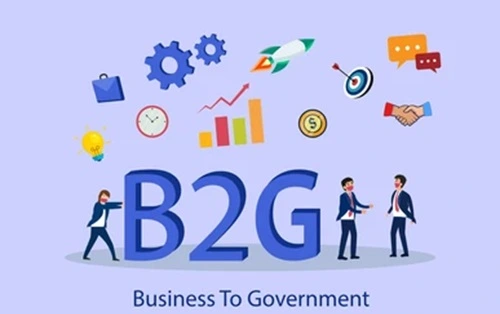You may have heard of all business types like B2B, B2C, C2B, and whatnot, right? And then you come to know about B2G, where it is businesses that sell products or provide services to the government of the nation. Want a precise example? Well, there are many firms out there that provide IT services to the government, and that’s just one way to look at it. But now you’d be wondering what are the benefits or downsides of diving into this business model, right? Well, let’s have a look at just that by considering the B2G business model advantages and disadvantages. Alright, here we go now.

Advantages of B2G Business Model
1. Stable and Lucrative Contracts
One of the best things about going into the Business to Government (B2G) approach is getting those big, stable contracts. In contrast to the unpredictable private sector, securing a government deal generally means getting into a goldmine of big money. Why and how exactly? Because the government will keep a deal they make with you no matter what. For businesses looking to maintain a steady cash flow without the typical private-sector stress, this kind of steadiness is literally a godsend.
2. Boosted Credibility and Trust
Getting a deal from the government isn’t just good news, it also gives you a lot of respect. Think about it: getting a job with the government isn’t easy. That’s why getting one is a sign that your business is great. This will not only improve your image, but it will also bring you other high-paying clients, both public and private.
3. Crystal-Clear Contractual Terms
One of the great things about the B2G business model is how things actually work, and we’re not even exaggerating it at all. You get jobs like that from the government. They make it clear what, when, and how to do it, which cuts down on confusion and arguments. This makes it clear from the start what is expected of everyone, which makes sure that projects go smoothly from the beginning to the very end.
4. Doing Good While Doing Well
And how can we forget that often, working in business-to-business (B2G) means getting your hands dirty on projects that help the general public aka the community, like building bridges, improving schools, or changing the way healthcare systems work? Sounds cliche, but sure, it’s not just about getting rich, it’s about making a real difference. This can make your team feel better and improve your public image, which is a win-win situation.
5. Gateway to Long-Term Partnerships
People who make deals with the government might end up together for a long time. Once you’ve shown that you can deliver, it can be easy to get more work. Since governments like to work with teams they can trust, a good track record could mean a steady flow of jobs down the line.
6. A Good Thing For Small Businesses
The government wants to give small businesses a fair chance, so let them know you’re here. For the little guys, they set aside pots of money that help them compete with the big guys in the field. Plus, getting government contracts isn’t as scary when you have extra help and tools for small businesses.
7. Safe and Secure Dealings
When it comes to the B2G business model, the risk of dealing with data is much lower because you don’t have to worry about any breach or anything like that since some top-notch security systems are already in place. And even if something goes wrong along the way, it won’t be upon you.
Disadvantages of B2G Business Model
1. Endless Paperwork and Bureaucratic Problems
Have you ever thought about why working on government projects is so hard? The B2G model is known for having very complicated winding methods. Imagine trying to find your way through the government’s tendering and hiring process, which is full of compliance checks, lots of paperwork, and slow routine steps.
2. A Lot Of Rules And Regulations
There is a strict set of steps you have to follow when working with the government. Compliance rules help to guarantee everything is open, fair, and responsible. Sounds fantastic on paper, however maintaining and keeping up the business along with all these rules and regulations can really be a super hard thing to manage.
3. Political Winds of Change
When we talk about politics, have you ever noticed how a change in the government can make everything different overnight? You’re following the rules one day and having a hard time adapting to new ones the next. This unpredictability isn’t just annoying, it also pushes businesses to keep their ears to the ground and change their plans at the last minute, which can be hard to do.
4. Waiting on That Check
Ever feel as though government organizations take endless time to cut the check? Yes, it wasn’t just you, we all think the same. The slow pace of work can very well make it hard to get paid, especially for small businesses that need on-time payments to keep the doors open and the lights on.
5. Competition
You think it’s hard to get a government contract? That’s right, it sure is. Businesses of all sizes are participating in this all-out fight contest. Big companies often get contracts because they have a lot of money, tools, and good relationships with the government. Making it into this club can be hard for smaller or newer businesses, even if their ideas are new and exciting or offer lower costs.
6. The Compliance Cash Drain
Yes, following the rules is important, but it costs a lot. How exactly? Well, to follow government rules, you have to pay for law and compliance teams, as well as checks and updates to make sure everything is still up to date. All of these costs can add up quickly and cut into your earnings. These costs can be especially hard on small businesses, making it hard to keep prices low and stay in business.
Conclusion
That’s all for now. For sure, getting into the B2G business model is pretty tough, but if you can do so, you’ll have the chance to hit it big and scale it up to the next level. We truly hope that today’s post did justice in explaining what the B2G business model is, and what are its pros and cons.

